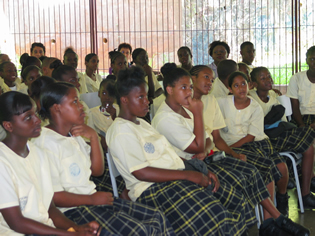Children's rights
All of the rights set out in the Convention apply to all children and adolescents regardless of race, colour, sex, language, nationality, ethnic or social origin, disability, or other status. These are the right to:
- life
- protection under the law
- freedom of expression
- freedom of thought
- freedom of association (the right to meet with others)
- health, education, social security, and an adequate standard of living.
In addition, the Convention goes into new areas such as the rights of children:
- to have their views considered in all decisions that affect them
- to adoption and care for those without families
- to have contact with their parents
- to protection from economic or sexual exploitation, neglect and abuse
- to support for those with disabilities
- to protection during situations of armed conflict.

In addition to the four conventions outlined here, there are a number of other important international human rights conventions that you may want to research on your own.